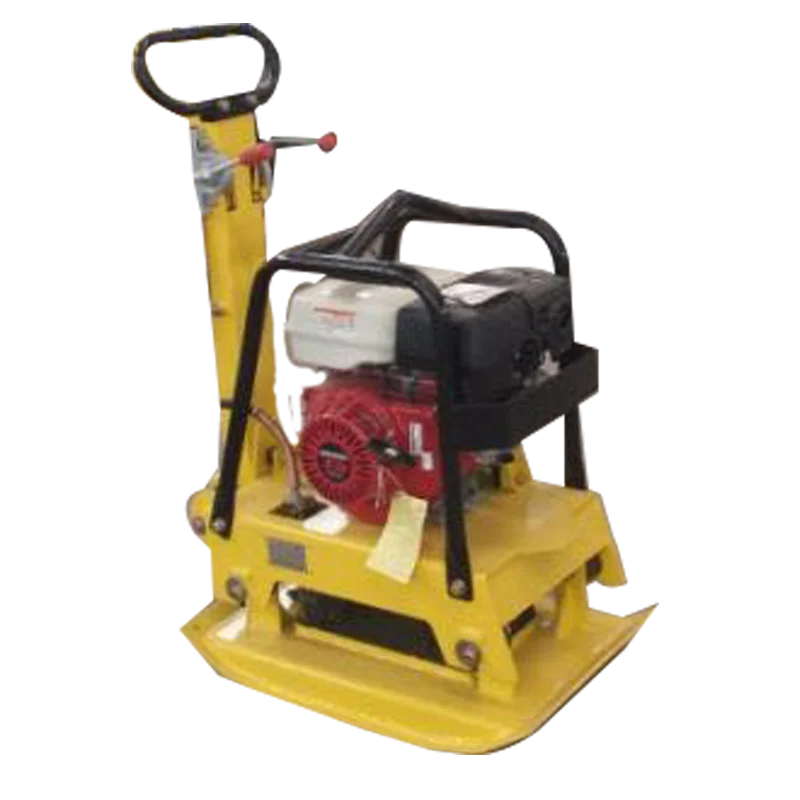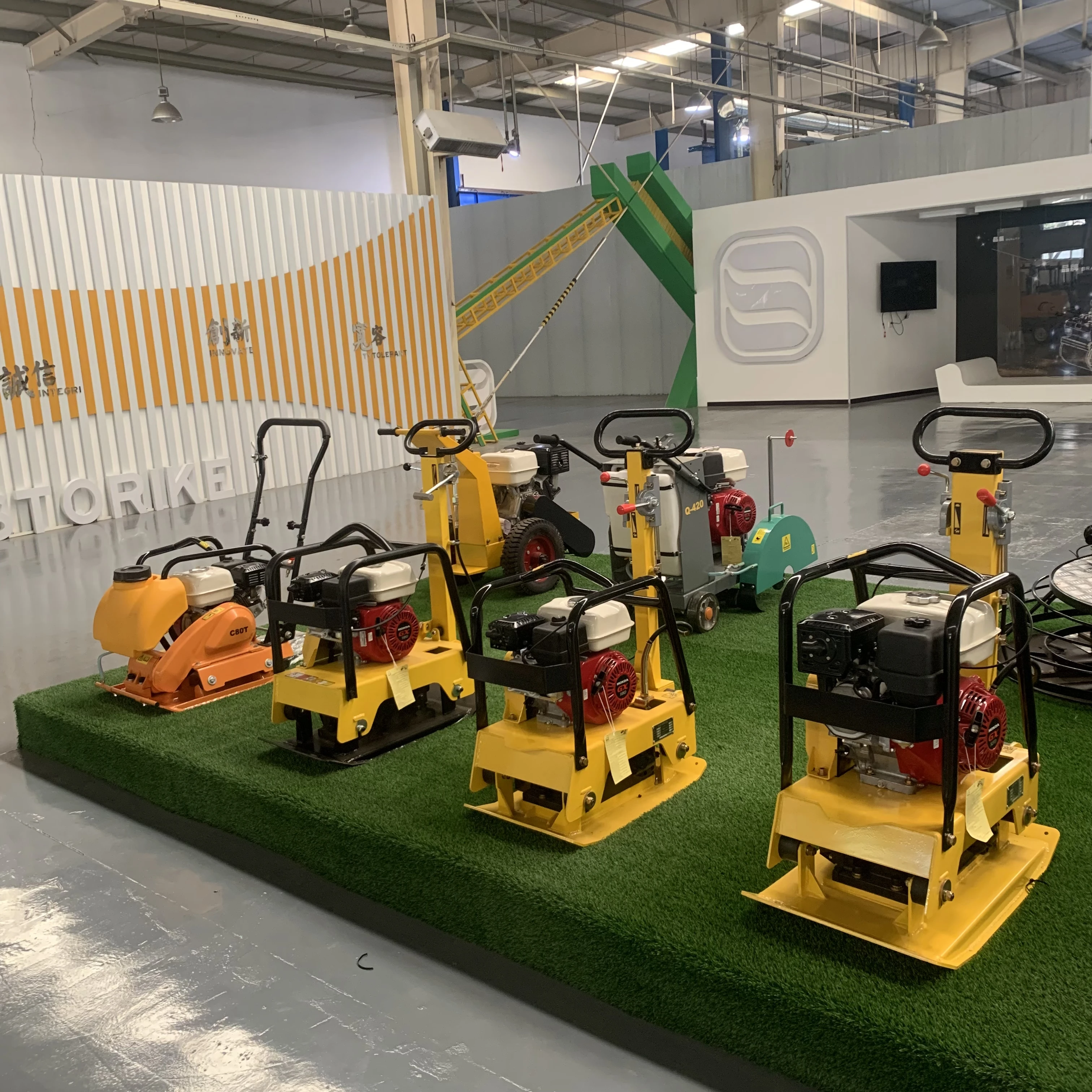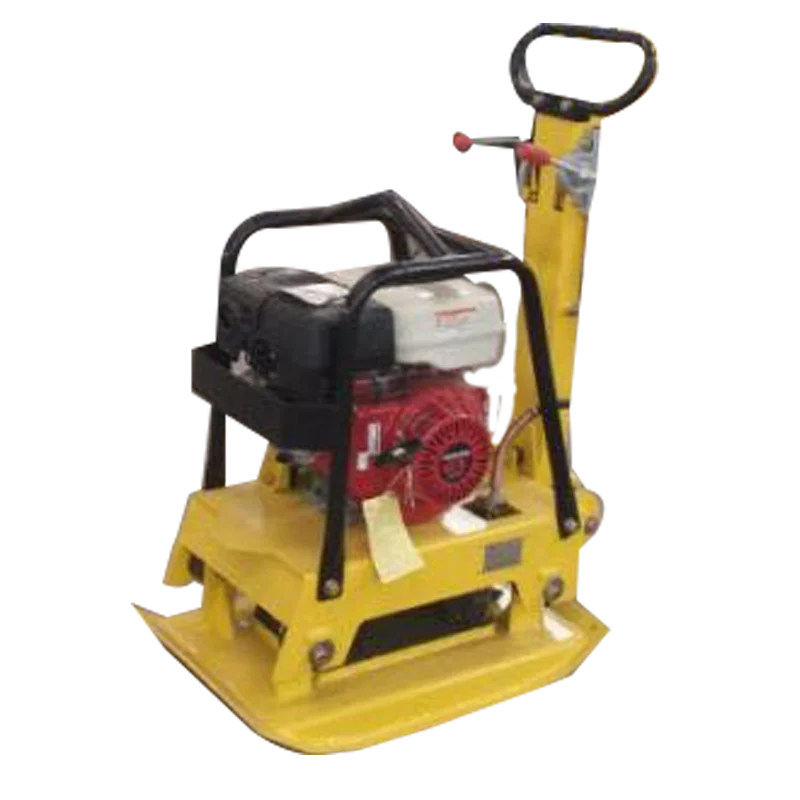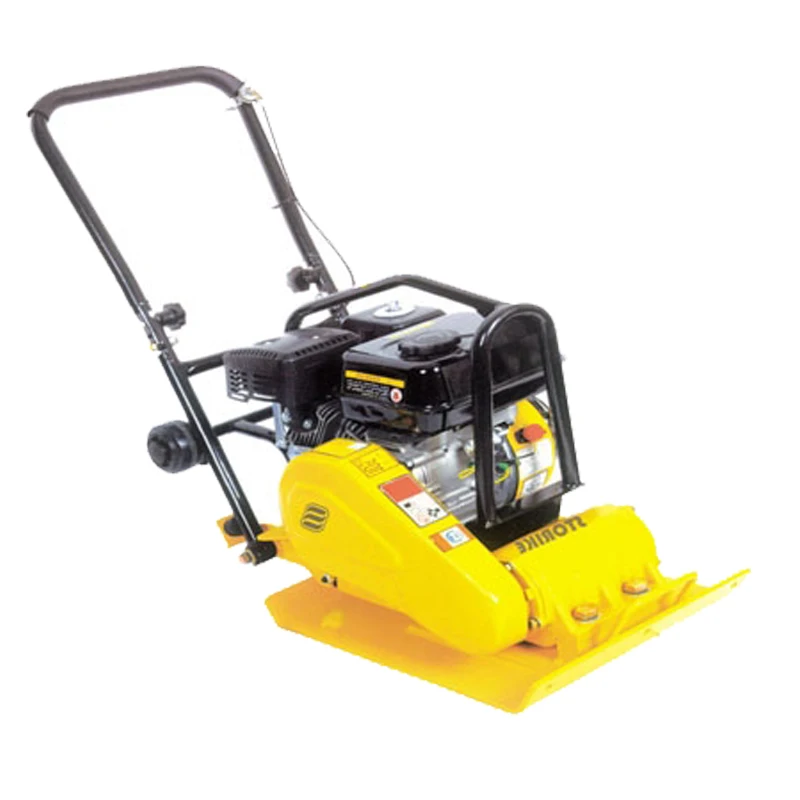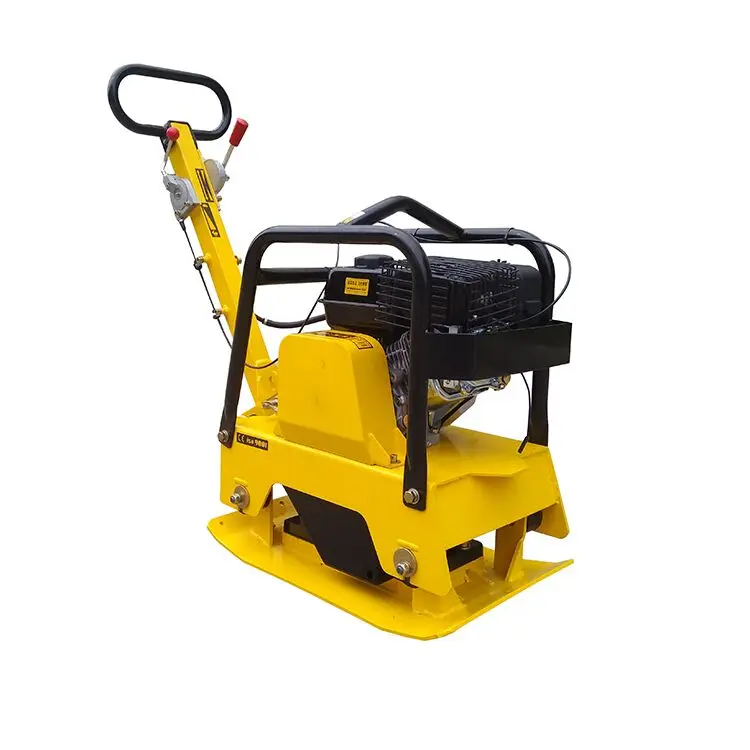Explore the Features of Plate Compactors in Construction
Key Features of Plate Compactors in Modern Construction
High Compaction Force and Efficiency
Plate compactors pack a real punch when it comes to getting soil dense enough for proper foundation work. These machines use vibrations that really get into the ground, making jobs go much quicker than trying to do everything by hand. Research from the construction sector shows some pretty impressive numbers too. One study found these compactors boost soil density around 30% better than traditional methods. For anyone working on building sites, this kind of performance difference matters a lot. When roads, buildings or pavements aren't built on properly compacted soil, problems tend to pop up later down the line. That's why most contractors now rely heavily on plate compactors for their projects.
Versatile Applications for Soil and Asphalt
Plate compactors today can handle both soil and asphalt jobs quite well, which explains why they're so popular on job sites. These machines come in handy for all sorts of building work from backyard patios to big highway construction projects. What really sets them apart is how they perform in different conditions without much adjustment needed. Take asphalt compaction for instance. When operators run these plates over fresh asphalt, they actually make roads last longer because the material gets packed tighter together. Contractors know this works since dense asphalt stands up better to traffic wear and tear over time. That's why many road crews rely heavily on plate compactors whenever laying down new pavement surfaces.
Durable Diesel/Gasoline Engine Systems
Plate compactors typically run on either diesel or gas engines, giving them the punch needed for tough jobsites day after day. What kind of engine powers the machine really matters when looking at how well it performs, how often it needs maintenance, and just plain getting the job done efficiently. Newer models focus more on saving fuel and cutting down emissions these days. This isn't just good for the environment either it actually saves money in the long run too. Contractors who have worked with both old and new equipment know this firsthand. Machines with better built engines mean fewer breakdowns during projects and lower expenses overall, something that gives companies a real edge in competitive construction markets where every dollar counts.
Types of Plate Compactors and Their Uses
Reversible Plate Compactors for Precision Work
Reversible plate compactors are great for getting into those really tight spots where regular equipment just won't fit. What makes them stand out is their ability to go forward and backward so smoothly, giving operators much better control when working around obstacles on complicated construction sites. Instead of constantly having to back up and turn around, workers can simply hit a button to switch directions right there on the spot. This saves loads of time compared to manually moving the machine into position again and again. According to some field reports from contractors who've switched over, projects tend to wrap up about 40% faster when using these reversible models. That kind of efficiency makes all the difference when dealing with large scale compaction jobs that would otherwise take forever with traditional methods.
Vibratory Roller Compactors for Heavy-Duty Projects
When it comes to tough jobs like paving roads or working on big construction sites, most professionals reach for vibratory roller compactors. These machines have those heavy metal drums that shake pretty hard, which really packs down the ground deeply and thoroughly. That makes them great for getting those solid base layers ready before laying asphalt or concrete. Built tough enough to take on weights well over ten tons, they're basically workhorses that can tackle all sorts of rough terrain without breaking a sweat. Anyone who's spent time on construction sites knows these rollers just get the job done day after day when faced with serious workload demands, and that speaks volumes about how reliable and effective they truly are.
Skid Steer Loader-Compatible Models
Plate compactors that work with skid steer loaders offer construction crews something pretty special when it comes to flexibility. The attachment process is straightforward enough that workers can switch between tasks without wasting time. Just snap it on for road work, take it off when trenching needs attention, then back again for soil compaction jobs. Contractors report saving days on projects because they don't need separate machines for each job. Labor bills drop too since one operator handles multiple functions instead of needing several specialists. Most folks in the field consider these combo units game changers. They see crews getting more done with fewer resources while still meeting those tight deadlines that seem to get shorter every season.
Top Plate Compactor Models for Construction Projects
STP160 Gasoline Reversible Plate Compactor
For anyone needing serious power without sacrificing mobility on site, the STP160 stands out as a top pick for construction work. Powered by an efficient gas engine and built with smart engineering, this machine handles everything from minor repairs to mid-sized jobs quite well. What really sets it apart is the reversible function that gives operators extra control when navigating tight spaces or awkward angles. Contractors love how it packs down materials so thoroughly. Some folks in the field report getting compaction results around 90% of what bigger machines achieve. No wonder so many professionals keep coming back to this model year after year despite all the newer options hitting the market lately.
60kg-270kg Compaction Machinery Series
The 60kg to 270kg Compaction Machinery Series covers all sorts of project demands with several weight choices so folks can pick what works best for their particular situation. Operators love being able to select models depending on what kind of soil they're dealing with and how deep they need to compact things. What makes this series stand out? Its versatility really shines through in real world applications. Contractors across the industry seem drawn to these machines because they just work reliably no matter where they show up. We've seen them tackle everything from夯实土壤 and asphalt surfaces down to getting ready patches of earth for new gardens or park installations.
Mini Handheld Vibrating Plate Compactors
Mini handheld vibrating plate compactors were made with tight spaces in mind, doing really well at getting those precise compactions needed for home improvement work around houses and gardens. Weighing next to nothing and packing small enough to toss into a pickup truck bed, they move from job site to job site without hassle, which is why so many weekend warriors grab one when tackling their own landscaping or fixing up old patios. Compared to stomping on dirt with boots all day long, these little machines actually get things done faster while still giving good results on smaller areas like flower beds or patching holes in driveways. People who have tried both ways usually stick with the compactor option because it just takes less time and sweat to make sure the ground stays firm underfoot after installation.
Gasoline-Powered Road Construction Models
Gasoline powered rollers get built to tackle the tough demands of road building jobs, giving contractors reliable power when they need it most and getting surfaces packed down efficiently. These machines come equipped with heavy duty parts that stand up to rough terrain and all sorts of weather conditions on construction sites. Most companies find they pay off over time since maintenance costs stay low even after years of daily use. Contractors who have tested these units in actual job situations report better results compared to other options available today. That's why many paving crews stick with them whether laying fresh asphalt or fixing up old roads that need resurfacing. The combination of lasting build quality plus faster compaction times really makes a difference on tight project schedules.
4-Stroke Wacker-Style Sand Compactors
The 4 stroke Wacker style sand compactors have become pretty popular because they save on fuel costs and just plain last longer than most alternatives out there. They handle all sorts of compaction jobs throughout construction sites big and small. What makes these machines stand out is how they cut down on vibrations, which means operators don't get as sore after hours of work. Contractors who deal with lots of sand and gravel projects tend to reach for these compactors again and again since they keep delivering uniform results without breaking down. While upfront costs might be higher compared to some cheaper options, many companies find that the long term savings on maintenance plus happier workers makes these models worth the investment over time.
Benefits of Using Plate Compactors in Infrastructure Development
Enhanced Soil Density for Stable Foundations
Plate compactors are really important for building strong foundations during infrastructure projects because they pack soil much tighter than other methods. When done right, this compaction prevents problems like settling ground and cracked foundations that can ruin entire buildings. Contractors know from experience that good compaction means fewer headaches down the road when structures start showing signs of stress. According to field reports, using plate compactors properly cuts foundation repair costs by around 30% compared to poorly compacted areas. The construction industry has learned through trial and error just how critical proper soil density is, which is why most major projects now include plate compactors as standard equipment for creating those solid bases needed to support everything from roads to skyscrapers.
Time Efficiency in Road Roller Projects
Plate compactors really speed things up on road roller projects, which helps keep construction on track and cuts down expenses. These machines work faster than traditional methods because they're built specifically for quick compaction jobs that get moved around easily from site to site. Contractors love getting infrastructure done sooner rather than later since this means big money saved and better overall efficiency across multiple jobs at once. According to some industry reports, using these compactors can actually cut project time by about 25%, something that makes a huge difference when facing those impossible deadlines without sacrificing quality standards either way.
Cost-Effective Maintenance of Sidewalks and Pavements
Plate compactors offer an affordable way to keep sidewalks and pavement surfaces in good shape without breaking the bank on labor costs. These machines pack down loose material really well, which keeps surfaces stable and prevents them from cracking or wearing out too fast. Contractors who've used plate compactors report saving around 30% on their maintenance budgets because they don't have to fix the same spots over and over again. For road crews and construction companies working on tight schedules, getting a plate compactor makes financial sense. The machine pays for itself pretty quickly when looking at all the money saved from fewer repair jobs down the line.
 EN
EN
 AR
AR CS
CS DA
DA NL
NL FI
FI FR
FR DE
DE IT
IT NO
NO KO
KO PL
PL PT
PT RO
RO RU
RU ES
ES SV
SV TL
TL ID
ID LV
LV SR
SR SK
SK SL
SL VI
VI SQ
SQ ET
ET TH
TH TR
TR AF
AF MS
MS GA
GA HY
HY KA
KA BS
BS LA
LA MN
MN MY
MY KK
KK UZ
UZ KY
KY

